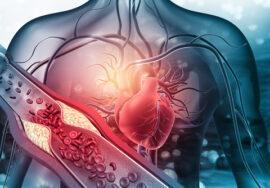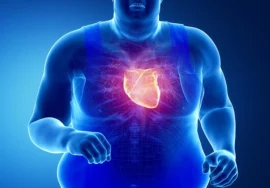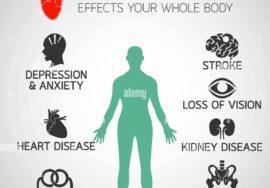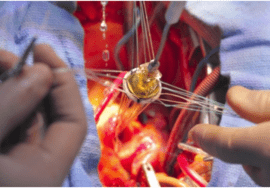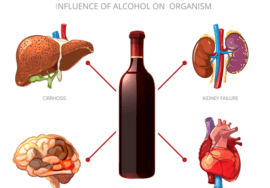
Heart Disease and Stress
“Heart Attack” … Even a “Lion Hearted” person’s heart skips a beat when this word is spoken by a physician, sweat emerges on the forehead, and hands begin to tremble. There are numerous reasons for this, including survival, post-discharge life and professional adjustments, and, of course, the cost of immediate and long-term therapy.
Patients would tell us a decade ago, “Doctor, we’ll have to consult our children in making decisions.” However, they now plead, “Sir, I have two tiny children; please do something; money doesn’t matter.” Heart disease has become more common in younger patients as a result of increased prosperity. Traditional risk factors for heart attack (Diabetes, High Blood Pressure, Cigarette Smoking, and High Cholesterol) are on the rise with today’s “Racing Lifestyle.”
“STRESS,” in combination with the above mentioned variables, is contributing to an alarming surge in heart attacks, particularly among younger people. It is past time for the medical community and laypeople to reflect on and address the reality that stress causes heart disease.
STRESS
Stress is an unavoidable aspect of everyone’s life, including doctors’. A single patient in the intensive care unit (ICU) is enough to keep a doctor awake at night. Dealing with a variety of difficulties in OPDs, wards, and OTs, as well as seeking to provide the best possible treatment to patients, contributes to a medical practitioner’s stress level. The stress level is increased by deteriorating patient-doctor relationships, a litigious society, and the profession’s “Rat Race.”
This is true in any field, but notably in ITES, where deadlines must be fulfilled, quality goods must be developed for the global market, and atypical working hours disrupt the body’s Circadian Rhythm, resulting in a great deal of physical and mental stress.
Stress is a physical or emotional strain experienced as a result of situations that make one feel furious, nervous, helpless, or frustrated. It’s the body’s response to the difficulty. Perhaps a demanding boss, morning traffic jams, or a strained friendship or family relationship. Whatever the source, it’s something that most people deal with on a regular basis.
It may have favourable impacts in short spurts, such as completing tasks or meeting deadlines. It might be beneficial if it inspires you to accomplish something. However, Chronic, overwhelming stress can be harmful to one’s physical, mental, and emotional well-being. As Per a Cardiologist in Aurangabad, Knowing how to recognize the signs and symptoms of chronic stress can help you keep aware of the problem and manage it before it becomes harmful to your health.
How does stress cause Heart Attack?
Cardiologist in Aurangabad, Dr. Umesh Khedkar that, When a person is under a lot of stress, the body produces a lot of hormones, which causes the renowned “Fight or Fight Reaction.” Long-term stress can result in a persistently high level of these chemicals, which can have a direct negative impact on the heart. These hormones also raise blood pressure and blood sugar levels, both of which are known risk factors for heart attack. Unfortunately, unlike blood pressure or blood sugar, stress cannot be “measured.” As a result, determining what level of stress is harmful to heart disease is challenging.
How to beat stress & save the Heart?
The impact of stress on the heart is highly individual, as everyone’s stress tolerance and coping capacity differ. Others are “Speeding Stallions,” while others are “Cool Cats.” The “5 S’s” are a set of strategies given by a Cardiologist in Aurangabad for dealing with stress.
- Speak up: Tell your Spouse, friends, and family about your worries. They might be able to point you in the right direction. Don’t let your feelings fester inside you. Allow them to leave. Being a “Gentleman” isn’t always a good idea.
- Solution: Try to come up with the most reasonable and friendly solution to the situation, which does not have to be perfect. Have the courage to change what you can and the humility to accept what you can’t.
- Socialize: Have a diverse group of friends and participate in social, cultural, and familial events. This diverts your attention away from challenges at work. You might even come across a “Solution” to your problem.
- Sports: Participate in a sport that your age and physique allow. This aids relaxation and raises “Endorphin Levels,” or happy chemicals.
- Spirituality: True spirituality, such as meditation and soul searching, will provide the power and aptitude to deal with the stress-inducing condition. A peaceful mind may disclose a simple remedy to the issues that are causing you tension.
Smoking and drinking spirits (alcohol) are the other “two S’s” that are strictly prohibited since they harm the heart and other body organs. These vices also raise traditional risk factors including blood pressure, sugars, and cholesterol. As a result, rather than relieving stress, these “Solutions” increase the risk of heart attack.
My advice to the general public and professional colleagues is to have a regular health check-up so that conventional risk factors can be detected and estimated. These dangers must be avoided. In this race of life, learn to “Let Go” and “Stop to Smell Roses.” Have a happy and healthy life.






